
Environmental Sustainability Management
Environmental sustainability management focuses on the efficient use of resources and the reduction of environmental impacts. It covers the economical use of water and the use of treatment systems before discharging, the legal management of both hazardous and non-hazardous waste, the control of air pollution to be within the standard, and the systematic planning of greenhouse gas emission reduction to cope with climate change sustainably.
-
Business Operation Strategy:
Conduct environmentally friendly business operation -
Operational objectives :
Target Performance 2024 Operating results for 2024 Proportion of clean energy usage in total electricity consumption within the organization should be at least 10% by 2030 7.86 % Reduce water usage per ton of production by at least 10% compare to the 2022 baseline Decreased by 27.89% from the base year 2022. Achieve Zero hazardous waste sent to landfills No disposal of hazardous waste by landfill. Ensure zero exceedances in air quality measurement beyond legal standards 0 time No environmental complaints No environmental complaints in 2024 Employees received training on the topic of factory environmental management/waste separation/carbon footprint 50% 55% of employees received training in 2024 Reduce carbon footprint (Scope 1+2) emissions by at least 5% compare to the 2022 baseline Decreased by 8% compared to the base year 2022. -
Policy / Action :
• Environmental and Climate Change Policy (Click) -
Environmental Performance Results :
Environmental Performance Results
1.Energy Management
The Company has focused on energy management to support its sustainability goals, focusing on increasing the use of clean energy, such as solar power, in the continuous operation process. In 2024, it carried out a project to install an additional 1,233.50 kW of Solar Rooftop, resulting in a total power generation capacity from all projects of 4,933.91 kW, which is part of the long-term plan to transition to renewable energy.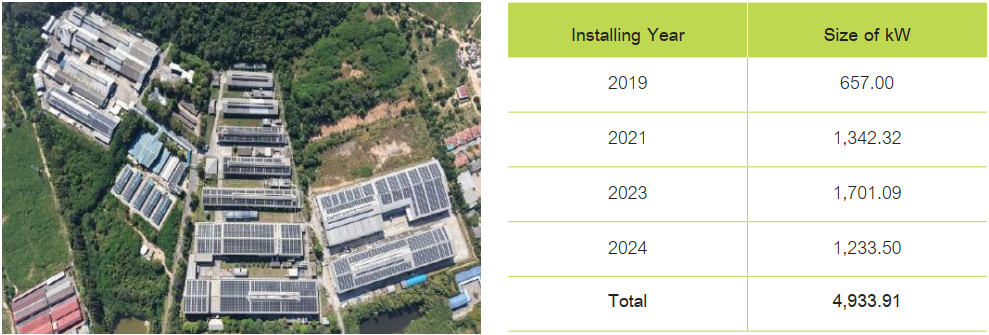 The company also aims to reduce energy consumption in the production and operation processes, and promotes efficient and environmentally friendly energy use, in line with the policy of efficient resource utilization to create a positive impact on the environment and support sustainable development goals at the corporate and social levels.
The company also aims to reduce energy consumption in the production and operation processes, and promotes efficient and environmentally friendly energy use, in line with the policy of efficient resource utilization to create a positive impact on the environment and support sustainable development goals at the corporate and social levels.

2. Water Management
The Company places importance on sustainable water use, as water is a resource that is important to both business operations and the surrounding ecosystem. It implements measures to regularly check water quality and maintain treatment systems, along with monitoring tap water and wastewater distribution systems to reduce leakage and water loss, and clearly defines the duties and responsibilities of operators so that they can effectively take care of and solve problems.
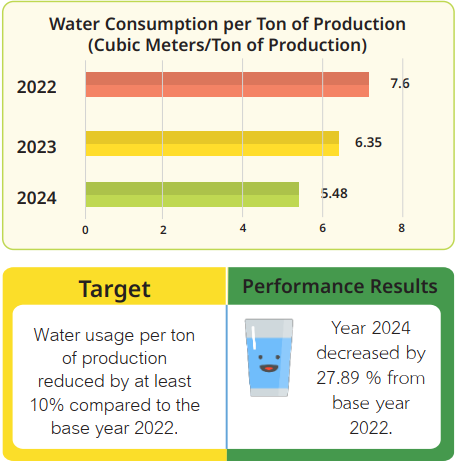
3. Waste, waste and pollution management
The company places importance on comprehensive waste, scrape and pollution management by strictly complying with environmental laws and standards, and promoting waste separation, waste reduction and safe disposal. In addition, it provides training and knowledge to employees and communities on proper waste management, as well as developing innovations such as transforming food waste into organic fertilizer and improving the production process to continuously reduce waste. This is to increase operational efficiency and reduce the impact on the environment in the long term.
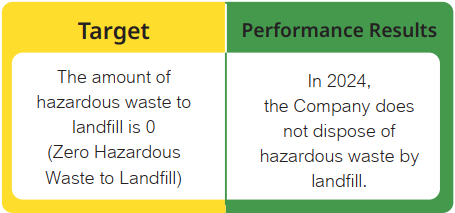
4. Air Quality Management
The Company places importance on effective air pollution management by controlling pollution from the source and measuring air quality annually to comply with relevant laws and standards. Various measures have been implemented, such as controlling the production process, establishing guidelines for air measurement and sampling, and continuously inspecting the pollution treatment system to prevent environmental impacts and maintain the efficiency of the system to meet standard criteria.
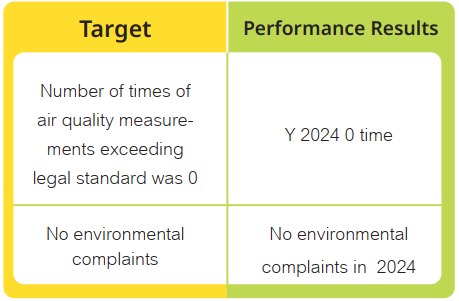
5. Greenhouse gas management
The Company is committed to systematically managing greenhouse gases to support the goal of reducing the impact of climate change in line with Thailand's NDCs. It has prepared a carbon footprint of the organization (CFO) according to the standards of the Greenhouse Gas Management Organization (TGO) and has verified the data by the ISO certification institute to create transparency in environmental operations.
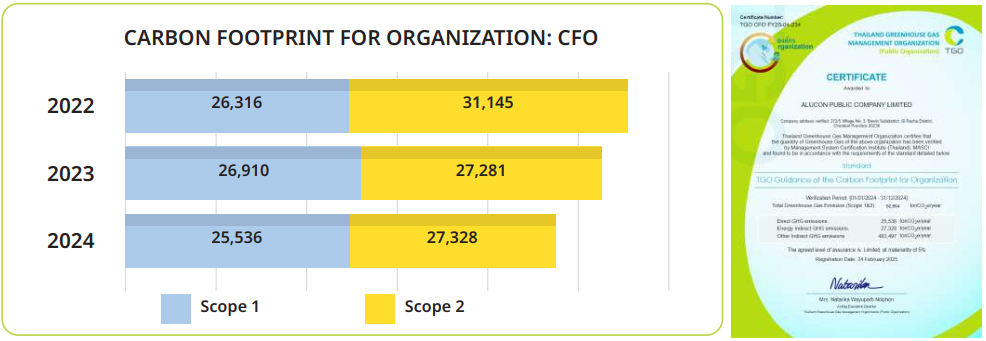
6. Other environmental projects and activities
- In 2024, the Company joined the Low Emission Support Scheme (LESS) project, with the idea of developing an operating model to reduce greenhouse gas emissions.
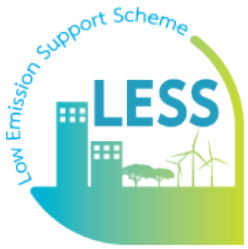
- In 2024, the Company joined the Thailand Carbon Neutral Network to promote a collaborative network between the private sector, government sector, and local/community sectors to reduce greenhouse gases to create sustainable growth in a climate-friendly society and aim for net zero greenhouse gas emissions in line with the intentions of the global community as reflected in the goals of the Paris Agreement on Climate Change.
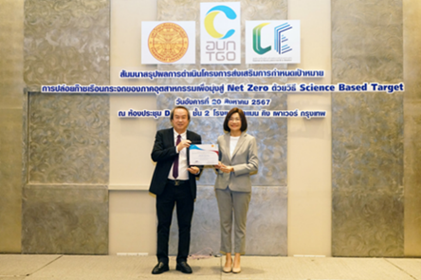

 English
English  Thai
Thai